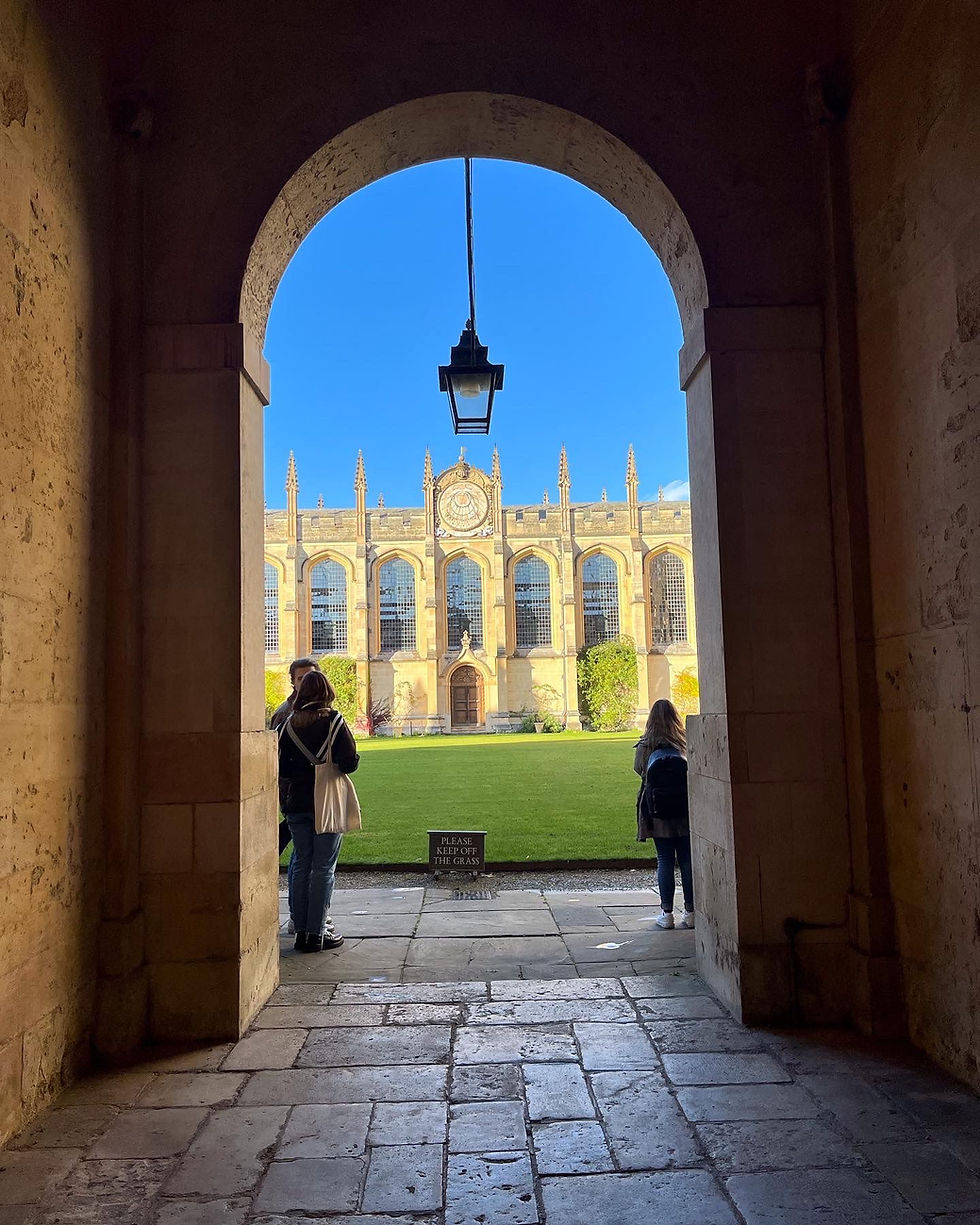50 REAL LIFE Oxford University Interview Questions - 2024
- Amy Ellis Winter

- Nov 1, 2024
- 3 min read
Updated: Nov 9, 2024
By Amy Ellis Winter (@amyxsofia)

Are you preparing for your Oxford Interviews? Perhaps you've just finished your Harry Potter movie marathon and want to know just how hard it is to get into Hogwarts. Or maybe, just maybe, you find interviews fun (who are you!?).
Whatever your reason, our current students and TOG ambassadors came together to give you 50 of the questions we were asked during our Oxford Interviews. Prepare yourself for a couple of weird ones also, and I don't just mean being asked 'What is water?' in the 'metaphorical non-scientific sense' (now you're just getting silly).
General
What's something we haven't asked you about today that you'd like to talk about?
What book are you currently reading? I didn't enjoy that book, convince me to give it another try.
Do you think you're clever? - (Personally I'd cry if they asked me this)
If our roles were reversed, and you were interviewing me, what would you ask?
Why do you want to study... *subject*?
What's been one of your biggest challenges in life?
When was the last time you read a book? What was it?
What would you like out of this degree?
How can one measure success?
How will your experiences from your sport/instrument (other hobby etc) benefit your future studies?
Humanities
Should it be illegal to run a red light in the middle of the night on an empty road?
Now you know the definition of this word, how did it change your perception of the poem?
What would you say to someone that said learning about the past is futile?
Describe colour
What's easier to solve, climate change or terrorism?
Do you think people should be allowed to make statments such as 'being gay is wrong' under freedom of speech?
Why does ambiguity contribute to texts?
Define 'cruelty.'
Of all nineteenth century politicians, which was most like Tony Blair?
Why are different genres of literature associated with a person's age?
In what ways is 'to borrow' different from 'to loan'?
Some critics argue that (*name*) was the most important author/philosopher/politician/historical event. I agree, convince me otherwise.
Does God have a gender?
Do you think a text should be approached from our new cultural perspective or remain in the context of its original production? Furthermore, is it harmful to approach said text from a modern perspective?
Are wars economically positive or negative?
How do you know you're real?
If I was a Martian, why would you say I should study English Literature?
What makes a novel or a play political?
Plato argues that objects in our world, such as chairs, come from an ideal form of a chair that transcends our world. Do you find this convincing?
What is the importance of Fair Trade?
STEM
Work out the angle between the hands in a clock.
How can we estimate the mass of the atmosphere?
If you could save either the rainforests or coral reefs which would you choose?
What is a recent development in medicine that you’ve read about?
How does a fridge work?
How would you conduct an experiment to measure sea grass in a small island?
Explain your reasoning for choosing wood and its relative benefits over metals based on their conductive properties.
Why are experiments important?
How would you design a gravity dam for holding back water?
How does DNA fingerprinting work? What is its use?
Show the forces acting on a ladder. - (Whiteboard/Paper provided during the interview).
How does a helicopter fly?
What would happen if you drilled through the Earth all the way to the other side and then jumped into the hole?
What percentage of the world's water is in a cow?
Sketch x^x (Whiteboard/Paper provided during the interview).
Is there a limit to how tall a tree can grow?
Ladybirds are red. So are strawberries. Why?
Imagine you are given a list of slightly less than 1,000,000 numbers, all different, and each between 0 and 999,999 inclusive. How could you find (in a reasonable time) a number between 0 and 999,999 that is not on the list?
Why is it important to study animals?
Why are there only 20 amino acids?
If you would like to read more Oxford Interview Questions written by current Oxford students, look no further:






It's very helpful I will be coming soon New model town for the zoom meeting now everything is going on this device you are want to get of course together with me and support the events bright app easy to use this program